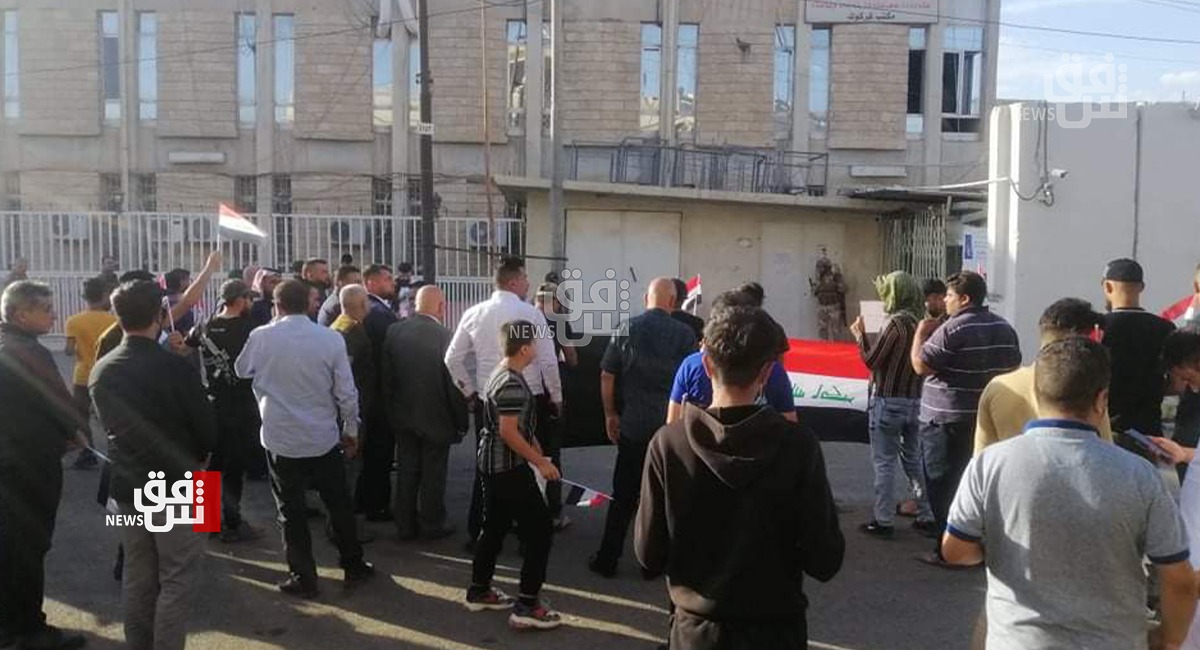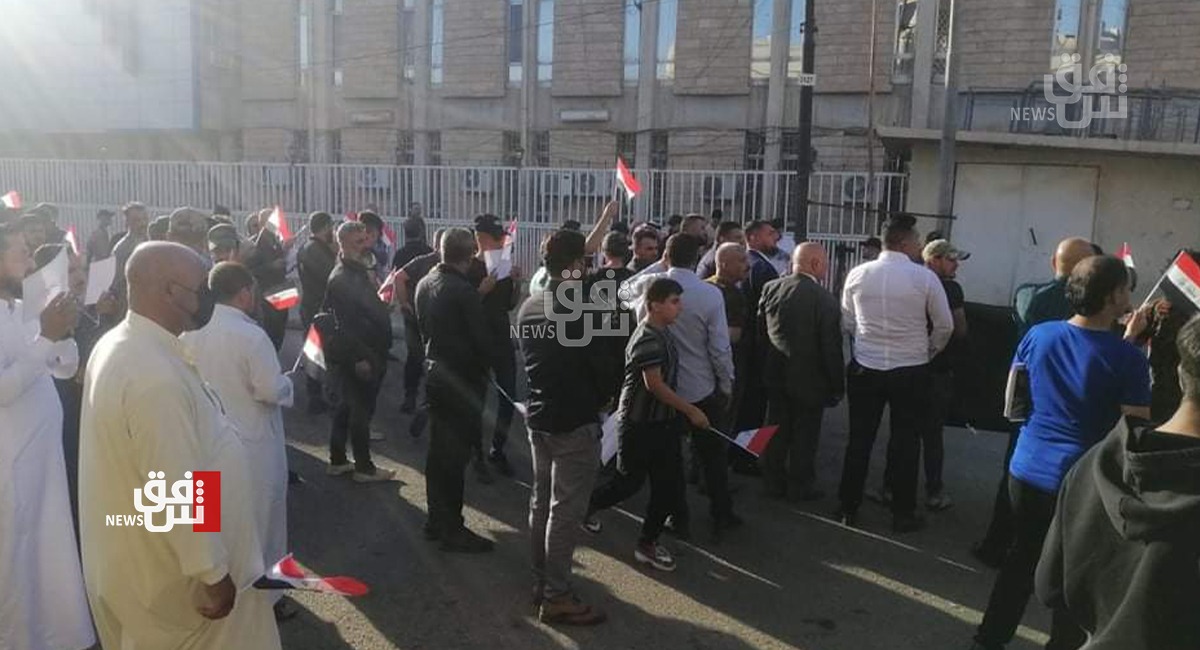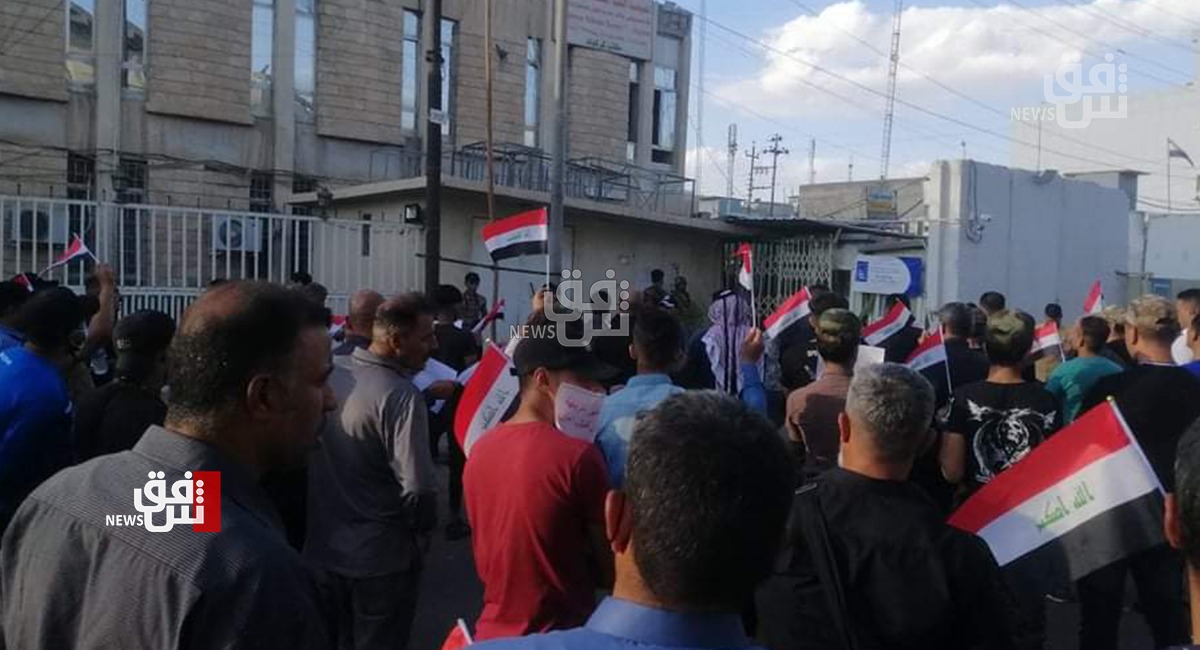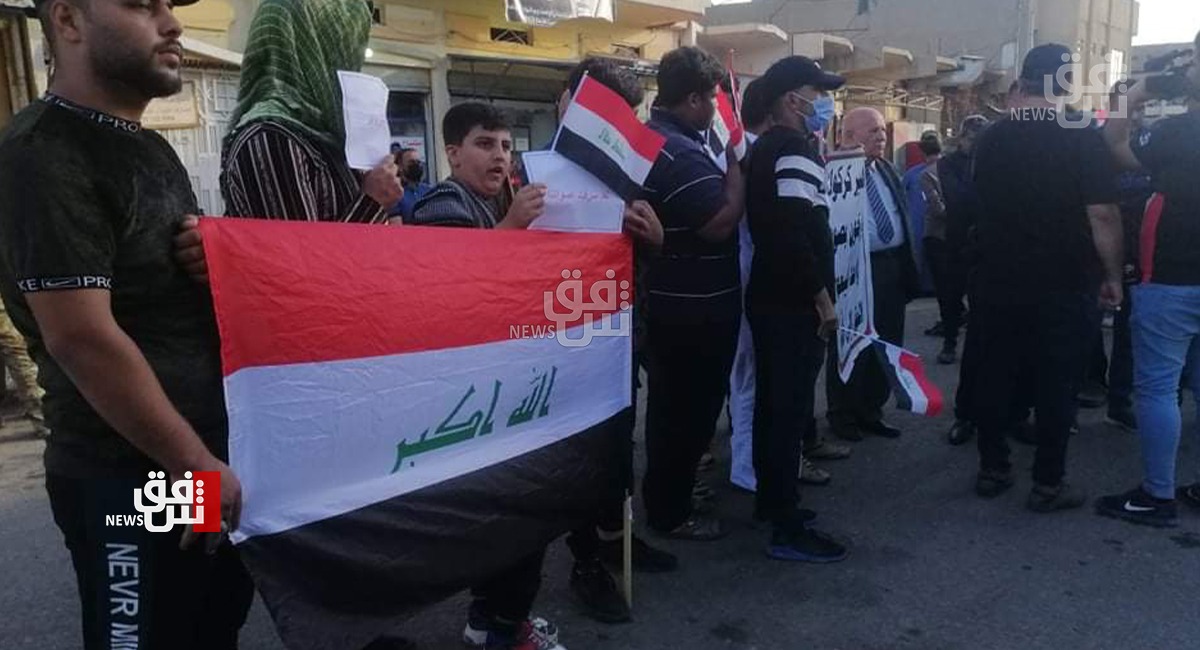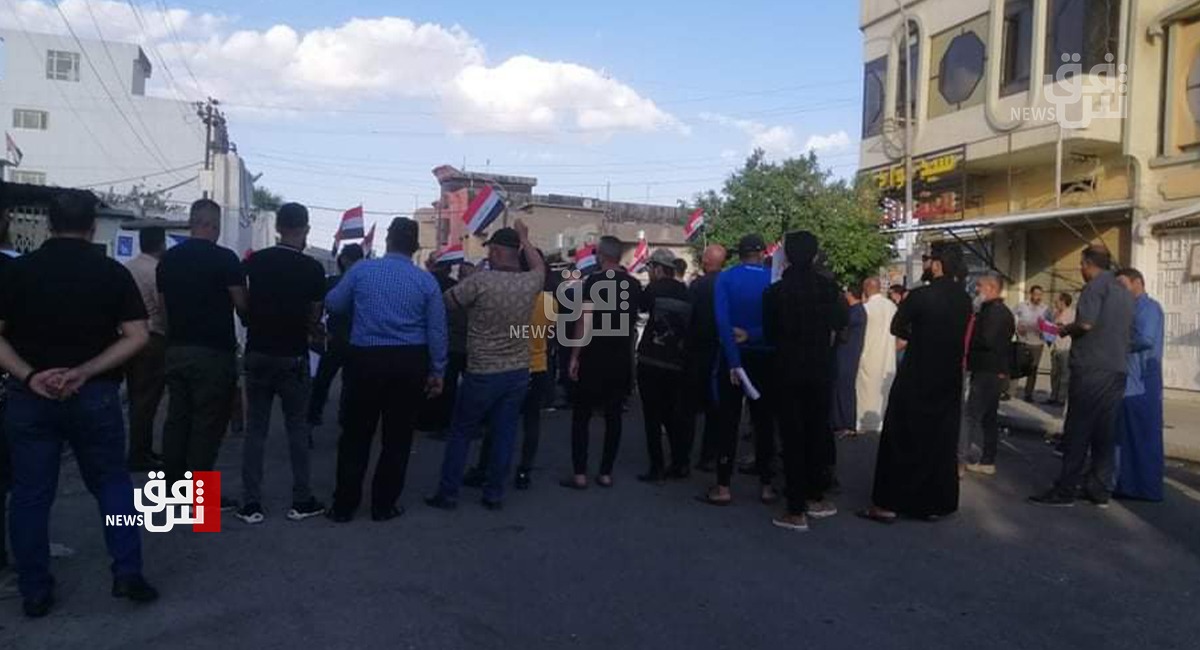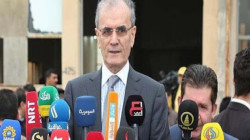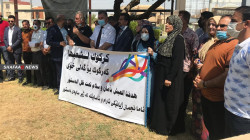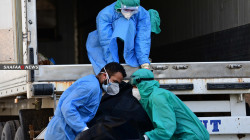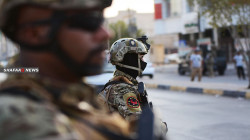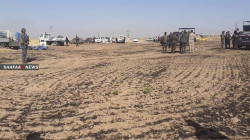Demonstrations against the results of the elections continue in different Iraqi governorates
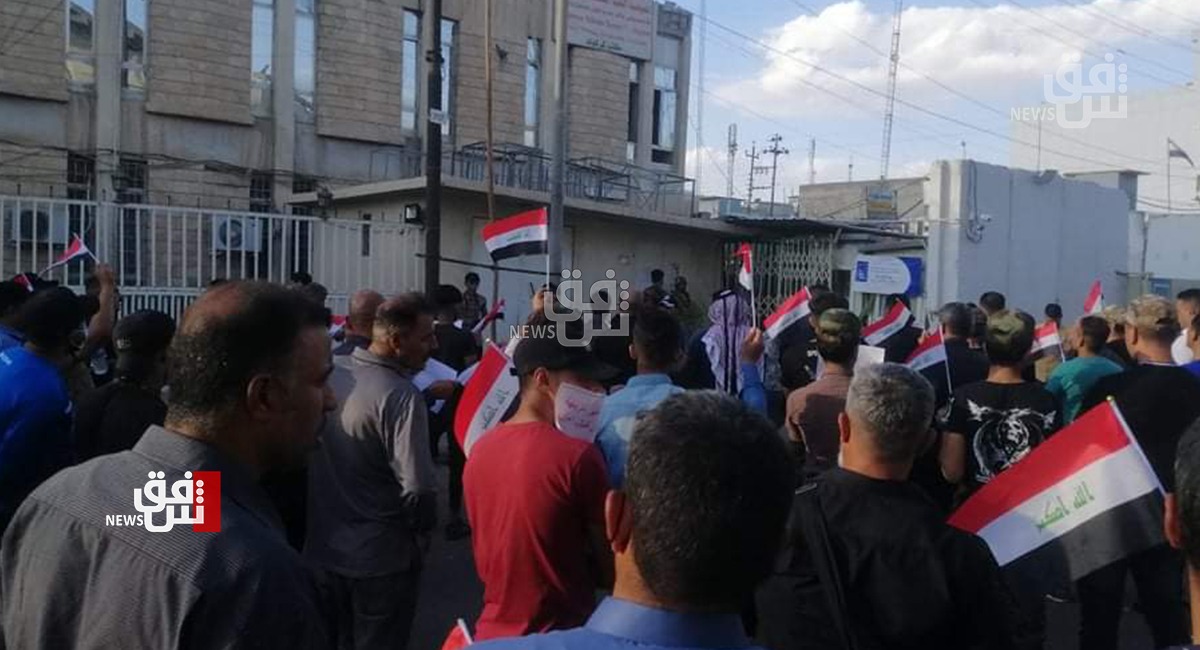
Shafaq News/ Dozens demonstrated in Kirkuk for the second day in a row against the results of the parliamentary elections.
Shafaq News Agency correspondent said that demonstrators gathered in front of the office of the Independent High Electoral Commission in Kirkuk, calling the federal government to cancel the results of the elections that took place on the tenth of this month.
Yesterday, Monday, dozens of Kirkuk residents organized another protest against the results blocking the main road.
In Basra, dozens of protesters prepared to set up tents in front of the IHEC office.
Earlier, Demonstrators protesting the results of the Iraqi parliamentary election have set up sit-in tents near the heavily fortified Green Zone, downtown the Iraqi capital, Baghdad.
Leading Shia parties in Iraq have announced their collective rejection of the October 10 parliamentary elections results after the initial evidence suggests a collapse in their vote share.
In particular, the Al-Fatah alliance, composed of supporters of the country's al-Hashd al-Shaabi (Popular Mobilization Forces-PMF), denounced the results as "fabricated." At the same time, a one-armed faction appeared to threaten violent action in response.
According to initial results released by the Iraqi High Electoral Commission (IHEC), the Sadrist movement led by the populist cleric, Muqtada al-Sadr, came out ahead with 73 of the parliament's 329 seats, in what had been an election with a record low turnout of 41%.
In a statement last week, Hadi al-Ameri, leader of al-Fatah, called for joint response against the election results from other Shia political factions.
"We do not accept these fabricated results, whatever the cost, and we will defend the votes of our candidates and voters with full force," said his office.
Al-Fatah saw its share of the seats in parliament, where it had previously been the second-largest party, decline sharply from 48 to 14 seats.
Al-Fatah Alliance, led by paramilitary leader Hadi al-Ameri, is comprised of parties and affiliated with the Popular Mobilization Forces, an umbrella group of primarily pro-Iran Shiite factions. The alliance rose to prominence during the war against the Sunni extremist ISIS group. However, it includes some of the most hard-line Iran-backed factions, such as the Asaib Ahl al-Haq militia.
Separately, a spokesperson for Kataib Hezbollah, an armed Iran-backed group labeled a terrorist organization by the U.S., called for their supporters to oppose the results and warned they would "stand firm and insist on restoring things to their rightful place."
Kataib Hezbollah's Huquq party has won one seat.
"The brothers in the Iraqi resistance should prepare for a sensitive stage that requires wisdom and close observation from us," said spokesperson Abu Ali Al-Askar, using a term that refers to groups opposed to U.S. and Israeli influence in the region.
"Be sure that no right will be lost behind it, so do not tire, do not get bored, and do not compromise, and victory will be your ally with the help of Almighty God."
Several other Shia political parties also faced a steep decline in their vote share, leading to complaints of irregularities.
The political bloc led by former Prime Minister Haider al-Abadi and cleric Ammar al-Hakim also co-signed a statement with many Shia political parties rejecting the election results and warning that they would "take all available measures to prevent the manipulation of votes."
Late on Monday evening, a meeting was held at the home of former prime minister and leader of the State of Law bloc Nouri al-Maliki, which was attended by most of the leaders of the Shia political forces and the leaders of the Iran-backed armed factions, where they discussed how to respond to what they deemed a "coup" by al-Sadr, backed by a "British-American plot."
Reports emerged about an intention to "escalate" the situation so that al-Sadr and Prime Minister Mustafa al-Kadhimi understand that "what happened will not pass without consequences."
"Some leaders suggested that we proceed with the legal procedures and focus on the options available to form a bloc larger than Muqtada's bloc, and some of them insisted that the security escalation is the best option at this stage," a leader of an armed faction said.
"Kataib Hezbollah insists on resorting to military options, but others have reservations about this option, and the majority of them do not support it."
Posted online successively, the results of the early parliamentary election showed the Sadrist movement maintaining the most seats in parliament, leading in several of Iraq's 18 provinces, including the capital Baghdad. Al-Sadr, a controversial leader, remembered for leading an insurgency against U.S. forces after the 2003 invasion, appeared to have increased his movement's seats in the 329-member parliament from 54 in 2018 to 73.
With 94% of the ballot boxes counted, none of the competing political blocs appeared on track to win a majority in parliament and consequently name a prime minister. But as the results stand, al-Sadr's bloc will be able to take a leading role in the political horse-trading to find a compromise candidate and set the political agenda for the next four years.
The State of Low Coalition, led by the former Prime Minister of Iraq Nouri al-Maliki, secured 37 seats, fours seat behind the al-Taqaddom (Progress) bloc led by the Parliament Speaker Muhammad al-Halboosi.
The Kurdistan Democratic Party (KDP), led by the Kurdish leader Masoud Barzani has won 32 seats, twice more than Iran's favorite al-Fatah Alliance, which toll of seats diminished to 14 only from 48 in the 2018 elections.
